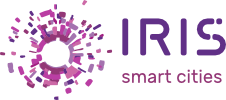
The Netherlands is home to one of the most accomplished start-up cultures in the world and Dutch researchers are now sharing their recipe for success hoping it can help other smart city businesses emerge.
Transforming cities into more sustainable and liveable places requires a wave of new business ideas, but cultivating the right start-ups is often a long and complicated process – especially for municipalities with climate neutral aspirations.
“Before you get to start-ups, you have to generate a lot of ideas,” said Loek Zanders from the Utrecht University School of Economics, a start-up expert working on ‘smart city’ business models – where digital solutions benefit a city’s inhabitants, economy and environment.
Zanders explains that cities have a better chance in finding and developing the right ideas if they “open up” about the sustainability challenges they face and then collaborate with a start-up ecosystem to develop dedicated businesses to overcome these problems.
“If you really want an idea to be developed into a validated business model, you will need to offer €10,000-20,000 to a team,” he added.
A targeted and incentive-based approach were two of the critical findings from Utrecht University’s ‘recipes for smart city ideation’, which Zanders and a team of Dutch researchers developed with the help of the EU-funded IRIS project.
The findings came after IRIS organised and analysed nine start-up events with the municipality of Utrecht, which were also centred around the sustainability challenges facing the region, from energy poverty to greener mobility. Eventually, this saw six smart city start-ups emerge from an incubation phase with a commercial contract with the city.
According to Zanders, another critical ingredient to this success was IRIS’ ability to tap into the municipality’s network of potential applicants, which saw thousands of more students, entrepreneurs and sustainability experts submitting their targeted smart city ideas.
“Getting access to this kind of network is actually the hardest thing [for idea generation],” said Zanders, adding that the more ideas IRIS received, the higher chance Utrecht had for smart city success.
“The end goal was that the municipality would become a sort of launching customer to the winning ideas,” Zanders added.
In total, IRIS was able to select 76 strong smart city concepts from the nine events, which were then judged by an expert panel and eventually narrowed down to 32 business ideas with high potential. After another review process seven start-ups were rewarded with a place at UtreckInc – one of the top ten best incubators in the world, boasting a 60% survival rate for its start-ups.
UtreckInc’s Stefan Braam helped cultivate these start-ups and said partnering with the city to target their specific challenges was a critical element to their post-incubation success, with the municipality contract that six of them received now giving them a much stronger chance of long-term survival.
“We see that a lot of start-ups that later become successful actually started with the problem in mind and not a solution,” said Braum. “We really urge start-ups to work from a market-needs perspective rather than a technology push perspective.”
Braam added that the quality of the IRIS-backed ideas was particularly strong because of Utrecht’s openness to the challenges they faced as well as including a special focus on diversity.
“A great team is better than a great idea,” said Braam. “Great teams are actually able to optimize and pivot to what works best for the context that they’re active in, while a brilliant idea only has one shot of becoming successful.”
Diversity was another ingredient in IRIS’ recipe for smart city success and the project found that this should see smart city idea development based around people with different skills and then putting them in the same incubator with start-ups at various stages of development.
According to Braam, this mix allows for a more resilient, experienced and productive foundation for incubators’ other services to build upon, from mentorship guidance to acceleration programmes – something he believes is increasingly important for more smart city business to help municipalities in their climate neutral journey.
The push for climate neutrality
In September 2021, the European Commission launched a mission to deliver 100 climate-neutral and smart cities by 2030, with these regions then expected to become innovation hubs that help all other EU cities to follow suit by 2050.
The Commission is offering €350 million in research and innovation funds from 2021-23 to push smart city ideas forward and Braam said municipalities should start thinking about the solutions they need now or else risk missing out. However, the incubation lead says it has never been easier to support this climate-neutral journey because the coronavirus pandemic has shifted a lot of the start-up culture online.
“When we are completely online, people from anywhere can really participate in our programs,” he said, adding the recent move to digital means incubators can now easily customize their programs for other regions and offer support in a more affordable way.
Mark Sanders is a professor of international economics at Maastricht University and was also involved in coordinating the IRIS project in the Netherlands. He says that the first step cities should take on their climate natural journey is to partner up with incubators like UtreckInc.
“Creating a dynamic towards climate neutrality in the city implies creating opportunities for new ventures,” said Prof. Sanders, explaining that this type of collaboration was a critical element of success to IRIS’ work in Utrecht.
The economics expert also recommends city policymakers communicate their sustainability challenges beyond their borders because this can result in more entrepreneurs finding a smart city opportunity in the problems they face – or for existing start-ups to find a new customer.
“It doesn’t matter where the ideas come from because if they work in one city, they will probably also work in others,” Prof. Sanders said, adding that this also suggests scale which is “the main engine of building up a viable business model” for smart cities.

